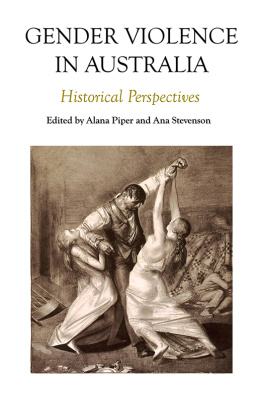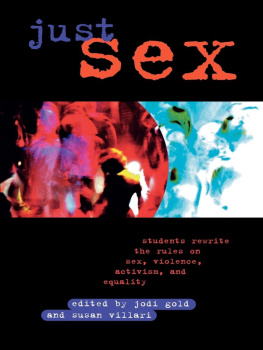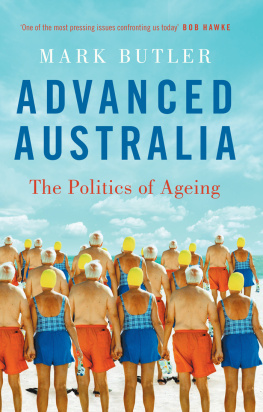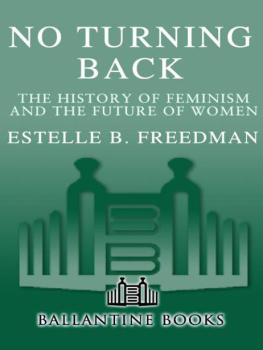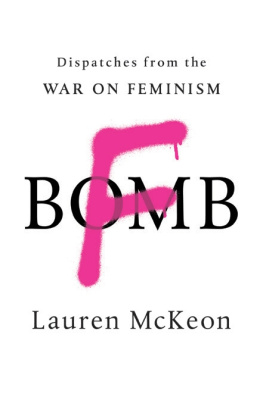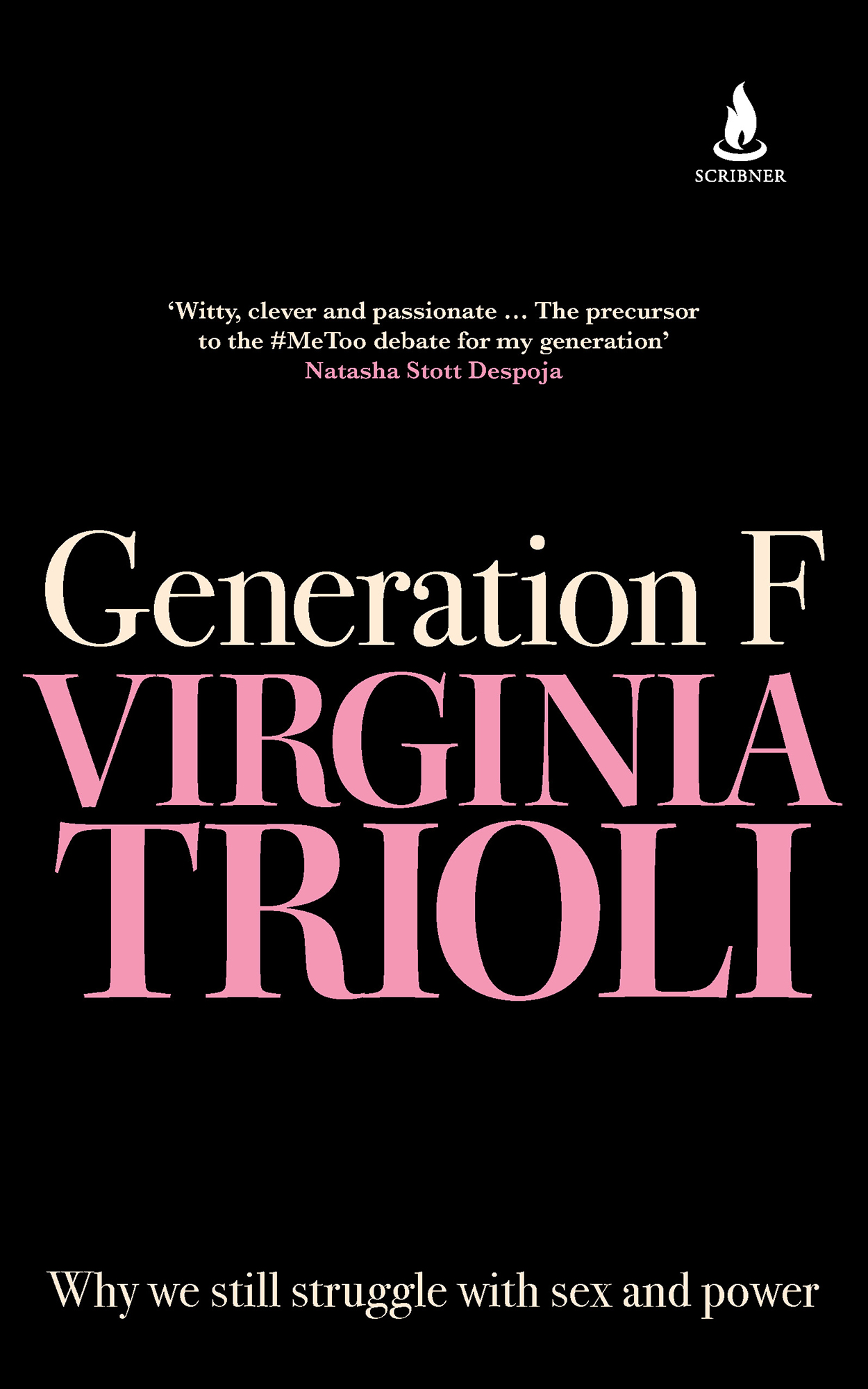Contents
Guide
About the Author
Virginia Trioli is a journalist, broadcaster and author. She is a two-time Walkley Award-winner and lives in Melbourne with her husband and son.
SCRIBNER
simonandschuster.com.au
www.simonandschuster.com.au/authors/Virginia-Trioli

First published in Australia in 1996 by Minerva, a part of Reed Books. This edition first published in Australia in 2019 by Scribner, an imprint of Simon & Schuster (Australia) Pty Ltd,
Suite 19A, Level 1, Building C, 450 Miller St, Cammeray, NSW, 2062
A CBS COMPANY
Sydney London New York Toronto New Delhi
Visit our website at simonandschuster.com.au
SCRIBNER and design are registered trademarks of The Gale Group, Inc., used under licence by Simon & Schuster Inc.
Copyright Virginia Trioli 2019
All rights reserved. No part of this publication may be reproduced, stored in a retrieval system, or transmitted in any form or by any means, electronic, mechanical, photocopying, recording or otherwise, without prior permission of the publisher.
A Cataloguing-in-Publication entry for this book is available from the National Library of Australia
Cover design by Alissa Dinallo
Typeset by Midland Typesetters, Australia
For my sister Angela and her daughter Winifred
People ask me about my mentors, my feminist role models well, a lot of the women I look up to are much younger than me.
The Hon. Justice Sally Brown, Family Court of Australia
Foreword to the 2019 Edition: Time Bends
What does a letter from the future look like?
In the sci-fi movie Interstellar, time bends to allow a frantic warning from many years away to be experienced in an oblivious present a tumble of books from a shelf in a coded pattern yet to make sense. The falling books are seen, but the message is not yet understood.
It takes some time for messages from the future to become clear. When two female students at the University of Melbournes Ormond College went to the police in 1992 to lay indecent assault charges against the colleges then-Master, Dr Alan Gregory, their actions seemed to some utterly bewildering.
Why would they go to the cops? An alleged touch on the breast? A leering remark? A silly old duffer at a college function doing the stuff that men on the sauce often did. If any of this indeed happened and many refused to believe that it did wasnt this the sort of thing that educated young women should be able to handle?
Books fell from the shelves. Down tumbled Helen Garners The First Stone: bewildered, angry and despairing about how women at the height of their erotic and social powers could be rendered helpless by a foolish fumble from the kind of men shed been fending off for years. Garners bewilderment was tinged with sorrow. Is this what her feminism had become, she asked: destructive, priggish, pitiless?
Her bestselling book sparked a firestorm of debate that can now be seen clearly as one of the first great battles of Australias culture wars. Sides were chosen largely but not always along ideological lines: for the young women if you still believed in the feminist cause; against them if you didnt. If that sounds simplistic now, it was even more tribal then. More distressing was the complex generational divide opened up by her book, and this was the most painful one of all, for everyone.
This divide didnt mean that all younger and all older women were lined up against each other there were some very high-profile exceptions to this on both sides. The substance of the debate came to be a struggle over exactly what freedom meant for a woman who wants to claim her place in the world: for those who could understand what the Ormond College women had done, that freedom was the hard-won right to have their claims tested in open court; for others, freedom should surely mean the capacity to tell a bloke to piss off and never let it get you down.
Garner and her many supporters said they did not understand why a woman could not rely on her innate power her implied sexual strength to bat away a hand and to refuse to let unwanted attention overwhelm her, and that was a criticism that was hard to take. I cant overstate how much we admired Garner and her generation. We knew they took the blows for us. We knew that for some women white, middle class, educated women like us it was so much easier now than it had been for them to call out much of the garden-variety sexism and discrimination that was their 60s lot.
Her generation of brilliant thinkers and activists dominated the conversation back then. You cant have an encounter with someone as ferocious as, say, Eva Cox, the founder of the Womens Economic Think Tank, and not hope that she approved of you. But Garners cry in the last line of The First Stone asking why they were all so afraid of life? left me gasping. I found myself in endless conversations about it with women of my age, and it felt something like sisters coming together to comfort each other after being chewed-out by a disappointed mother.
The fault-line we all stumbled on was whether this was a failure of self-reliance by our generation, or a moment of appeasement by the one above and the disappointment between generations was profoundly mutual.
This generational split was no fiction. I felt the grain of 60s activism in Garners question of why the young women went to the cops: I wondered if the word in earlier drafts might have been pigs. Right there was a central difference between the generations. The women I knew were working with police to reform law and change policing behaviour, trying (not always successfully) to build relationships, and they pragmatically saw a better-informed police force as central to achieving change for women. But those older than us had a profound mistrust of the law, understandably through bitter experience. The cops. The very last people youd go to.
After The First Stone, articles, pamphlets, denunciations, speeches and critiques showered down and none were without a fervent seizing of ground. The entire legal apparatus of sexual harassment laws seemed up for grabs; but institutional inertia also started to be exposed. Routine abuses of power in the workplace were discussed anew, this time with a strengthening backlash against what some saw as trivial complaints. The battle was exhausting. Garner described it as a year of horror.
It was now 1995, and I was winded by disappointment. It seemed that just when women should feel confident and able to use sexual harassment laws created for them by a previous generation of feminists, we were being denounced for daring to take matters further than a discreet, in-house complaint. Back then, evidence showed that many workplaces simply had no idea of how to deal with sexual harassment matters: women were being told that it was your word against his and therefore there was no evidence to support a complaint. Women were not being believed and, worse, were being encouraged, even paid, to leave rather than take their legitimate grievances further.
The debate had devolved into a slanging match a confusion of sex with sexism, of mutual affection with uninvited attention.
I was a reporter at the Age newspaper. I had my dream job writing long-form features for one of this countrys greatest newspapers. My editors were serious, accomplished journalists and they were almost all men. The culture was blokey, but progressive. Yes, women were assumed to be every bit as good as the men around them, but we also knew we had to navigate a system that still excused the excesses of some men with unfussed indulgence.


